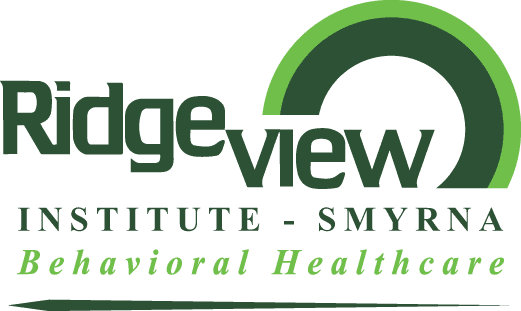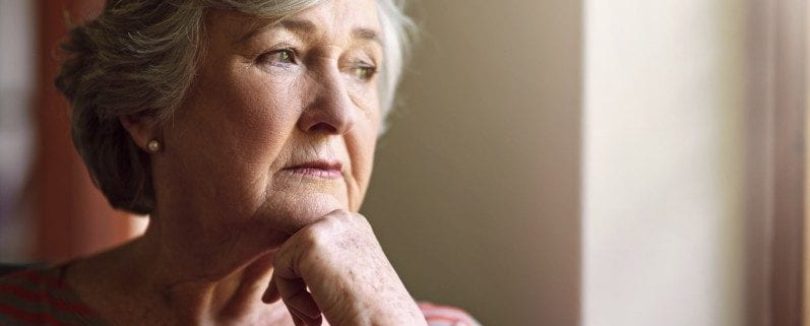By Donna McGrane, RN, Ridgeview Institute Community Relations Representative
Believe it or not, there is a growing epidemic for older adults – the incidence of substance abuse. Yes, Mom, Dad and Grandparents alike suffer from substance abuse including alcohol and prescription drugs, at a rate of up to 17% of adults age 60 and over. It is a serious problem that is typically ignored.
Identifying either an alcohol or prescription abuse problem in an older adult is very difficult. Symptoms of insomnia, poor concentration and coordination, confusion and depression are regularly blamed on “old age.”
Barriers to identifying substance abuse in this age group are that older adults are often isolated in their home or far from family. They are not in the work force where poor performance could be noticed. Many seniors do not drive. This is a generation who views alcoholics as the “guy under the bridge,” and see alcoholism as a moral and character issue full of shame and denial.
This generation did not grow up in the self-help age, sharing feelings, telling secrets. They are part of the “Greatest Generation”. They solve problems, have experienced war and economic depressions and most importantly, believe in God and America. They don’t discuss their problems, rather they were taught to “pull up their boot straps and go on.” Communication about issues and emotions were rarely front and center to the profile of our parents and grandparents.
There are two types of alcoholism in the older adult. Early onsets are the adults who have suffered with the disease and have been drinking most of their life. This accounts for two thirds of the older alcoholics. Late onset alcoholism occurs in one third, who drink excessively later in life, often following a significant loss or life change, such as the death of a spouse or retirement from a long term career and organization that defined them in society.
Financial problems, estrangement from family, isolation and loneliness, changing body chemistry, chronic pain, depression, losses, boredom, and a history of substance abuse are all contributing factors to alcoholism later in life.
Family dynamics, attitudes and the stigma of addiction also contribute to the older adult not getting help. “Why deprive them – they haven’t got long to live” or “It is Mom’s only pleasure,” or “Dad’s too old to change – he’s been drinking all his life.”
Prescription drug abuse is also an epidemic problem. More than 83% of older adults over age 60 are prescribed at least one medication, and over 50% of those are sedatives. Many older adults see multiple physicians, and take an average of 13 prescriptions annually, in addition to over-the-counter medications. The belief that if a doctor prescribed a “medicine” it has to be effective and it has to be OK. Adverse drug reactions from polypharmacy and co-morbid health conditions can mimic or mask symptoms of addiction.
Older adults do have health problems and adverse medical conditions. Their bodies absorb, metabolize, distribute and eliminate drugs differently than younger people, so a “normal” dose can cause toxicity and dangerous side effects. Adding alcohol to the mix, over-the-counter medications, emotional, financial and social factors, losses and life style changes increase the risk of addiction. Alcohol and prescription abuse can lead to depression, dramatic personality changes, memory loss, malnutrition, falls, and several forms of cancer, heart disease and early death. Many times regular exercise and solid dietary regiments have fallen by the wayside in older adults weakening further the physical counteraction to drugs and alcohol.
The misuse of alcohol and prescriptions can also worsen diseases normally associated with aging, including heart and liver disease, diabetes, arthritis, gastrointestinal disorders, hearing loss, cataracts and dementia.
Here are some signs you may notice:
- Drinks in a solitary, hidden way.
- Makes a ritual of having drinks before, with or after dinner and becomes annoyed when this routine is disturbed.
- Drinks in spite of warning labels on prescription drugs.
- Is often intoxicated or tipsy, displays slurred speech.
- Is neglecting personal appearance, gaining or losing weight.
- Often has the smell of alcohol or mouthwash to disguise it.
- Complains of sleeplessness, loss of appetite, chronic health complaints.
- Has unexplained burns, bruises or tries to hide them.
- Seems more depressed or hostile than usual.
- Can’t handle routine chores, paperwork without mistakes.
- Has irrational or undefined fears, delusions, unusual stress or loss of memory.
Adults are living longer, so addressing these issues in someone in their 70’s can mean they may have another 5, 10 or even 20 years of improved physical, emotional and spiritual health. Older adults have the highest recovery rate of all age groups. A key factor in the recovery of an older adult is the concern and involvement of family and friends. Unfortunately, 90% of older adults at risk never receive help.
If you suspect a family member or friend who may have an alcohol or prescription drug problem, take that first step to getting them help and a thorough evaluation.
It is important to take into consideration the person’s age and ability to understand. Be gentle and loving, avoid confrontation, and avoid using the terms “alcoholism” or “drug addiction” since these carry a heavy stigma. Focus on the present issues and effects on their life now, do not dig up issues from the past. Be direct, be specific, and use “I” phrases such as “I have noticed,” or “I am worried,” so the older adult can’t argue with your feelings.
Mom with a substance abuse problem? Maybe!
Ridgeview Institute, located at 3995 South Cobb Drive, Smyrna, Georgia, is a private, not-for-profit provider of psychiatric and addiction treatment, including inpatient, partial hospitalization, and intensive outpatient treatment options for youth, young adults, adults, and seniors. We offer specialty programs for Impaired Professionals, Eating Disorders, Young Adults, and Seniors. For more information on Ridgeview’s programs and services please call (770) 434-4567 or visit our website at https://ridgeviewinstitute.com/.

